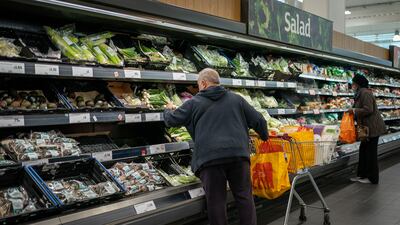Sainsbury's, the UK's second-largest supermarket chain, says food inflation is starting to drop.
Retail sales for the supermarket saw a 9.8 per cent increase in the first quarter.
“Food inflation is starting to fall, and we are fully committed to passing on savings to our customers,” chief executive Simon Roberts said.
The supermarket giant faces competition from discount stores Aldi and Lidl, which have been gaining market share during the current economic crisis.
The company has shown growth due to higher prices and an increase in food volume sales, it said This growth, coupled with market trends, could mean an increase in overall profit for the year, aligning with previous guidance, it added.
The battle for market share among UK grocers is fierce.

To compete with discounters, Sainsbury's has a price-matching strategy with Aldi on about 300 products and renamed its cheapest own-label range Stamford Street.
Sainsbury's also says it has enhanced its Nectar card loyalty scheme. The Nectar Prices programme launched in April has saved customers more than £90 million, the supermarket said.
The value of the company's shares has risen 26 per cent this year.


